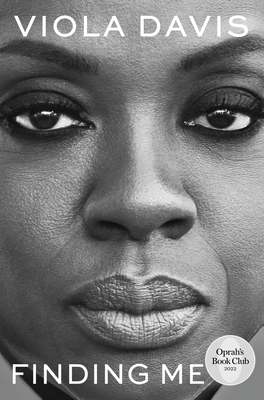- How Literature Depicts the Chinese Cultural Revolution
- Viola Davis, Inside Out
- Fed up with lackluster reading scores, Wenatchee schools turned to science
- What will we be reading next year? Five biggest trends from the London book fair
- When are book bans unconstitutional? A First Amendment scholar explains
- In Praise of Dysfunctional Heroines
- The Power of Narrative
- An Interview with Parul Sehgal
- What If?: Books Like Sliding Doors
- Life Stories in Literature
How Literature Depicts the Chinese Cultural Revolution
Here’s an engaging article that illustrates one of the major themes of Life Stories in Literature: how dominant—and dominating—societies control the historical narrative and attempt to erase the voices of individuals and marginalized groups. Dee Das writes:
When we talk about the Chinese Cultural Revolution, we mostly zoom in on the lives of its movers and shakers. The ordinary people are rarely in the spotlight even though it was they who had to suffer insurmountable losses. Literature to an extent tries to rectify this imbalance by bringing the focus back to the masses, the ones whose lives were upended because of Mao’s ideologies and teachings.
Categories: Literary History, Literary Criticism, Life Stories in Literature
Life Stories in Literature
Themes
identity
family
we are what we remember
inside vs. outside stories
imposters
hidden identities & secrets
trauma
creating/controlling one’s own narrative
cultural appropriation
alternate life options
alternative selves
turning points/life decisions
when/how lives intersect
multiple points of view
rewriting history
change your story, change your life
Viola Davis, Inside Out
My recent barrage of republishing all my old (before 2018) nonfiction reviews reminded me of how much I miss reading powerful memoirs. So, as soon as I finish my soon-due library books, I’ll be picking up Viola Davis’s Finding Me, just published at the end of last month (April 2022).
Categories: Memoir, Life Stories in Literature
Fed up with lackluster reading scores, Wenatchee schools turned to science
This news story describes a method of teaching reading introduced in 2019 in the Wenatchee School District in Washington State. The teaching method, called structured literacy, focuses on “brain science and teaching the fundamental structures of English, including phonics.”
The article is a good introduction to the topic of the history of teaching reading, which usually centers around two schools of thought: phonics vs. whole language.
Category: Reading
What will we be reading next year? Five biggest trends from the London book fair
The Guardian identifies five publishing trends from last month’s London Book Fair:
- Celebrity-authored fiction is on the up
- Books about Ukraine are in demand
- Greek myths rumble on
- Women’s stories are getting darker
- Self-help books are taking on new relevance
Categories: Reading, Publishing
When are book bans unconstitutional? A First Amendment scholar explains
Amid the rising number of book and curriculum challenges across the United States, Erica Goldbert, associate professor law at the University of Dayton in Ohio, discusses the concept of censorship, which she says is “often highly misunderstood.”
Categories: Censorship, Libraries
In Praise of Dysfunctional Heroines
Dawn Winter, author of Sedating Elaine, celebrates the fictional portrayals of “Imperfect people in an imperfect world, learning how to swim in messy floodwaters. A fact of life, which is also a truth of fiction.”
Categories: Literature & Psychology, Life Stories in Literature, Fiction
The Power of Narrative
In this adaptation from their book The Great Narrative for a Better Future, Klaus Schwab and Thierry Malleret explain how people can “prepare for the future, by confronting both the risks that we can mitigate and the things that will surprise us. As the most effective conduits for ideas, narratives have the unique power to help us determine what’s going on, what lies ahead, and what needs to be done.”
Categories: Story, Reading
An Interview with Parul Sehgal
Zachary Fine interviews Parul Sehgal, who, after working as senior editor of the New York Times Book Review, has recently become a staff writer at The New Yorker.
Asked about “the emotional arc of writing a piece of criticism,” Sehgal replies, “For me, whatever the assignment, a crucial step is staying open to surprise. I have to see a book for what it is, not filter it through a prism of what’s in fashion or my own encrusted tastes and biases.”
Category: Literary Criticism
What If?: Books Like Sliding Doors
What if one little thing in your life was different, and it changed everything that came after? That’s the premise of the 1998 film Sliding Doors, in which Gwyneth Paltrow either does or doesn’t miss a tube train after getting fired, and so does or doesn’t catch her boyfriend cheating on her. We follow these two versions of her life . . .
Wow! I have never heard of this film, but I’ll definitely have to find and watch it—because it’s about a couple of the many themes of Life Stories in Literature, alternate selves and alternate life options.
Claire Handscombe looks at some books that “[explore] the idea of one small moment, one decision, or one circumstance, and its ripple effect on one or several lives. Sometimes, that comes in the shape of one person making a split-second decision; other times, we meet women from the same families whose lives turn out differently because of one choice or one parent.”
Category: Fiction, Life Stories in Literature
© 2022 by Mary Daniels Brown


